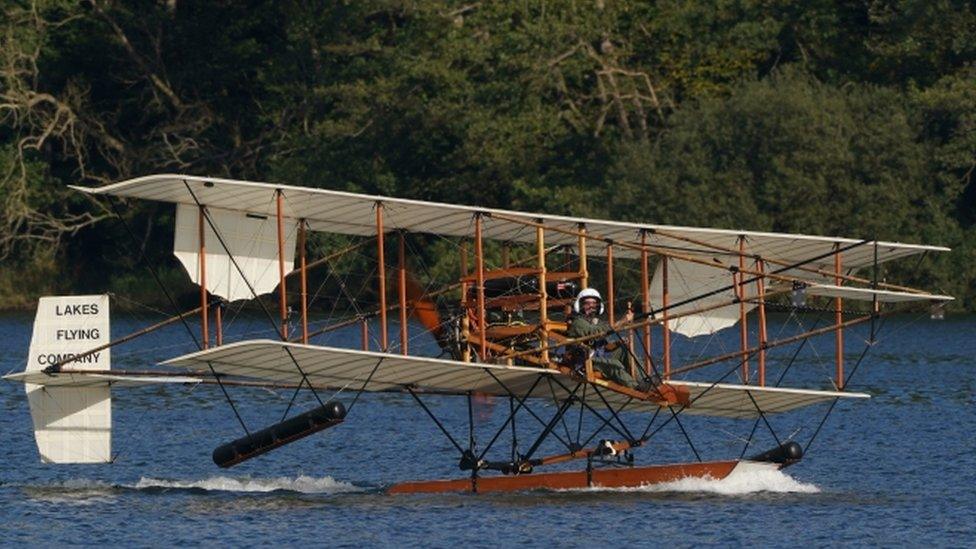Historic seaplane returns to lake
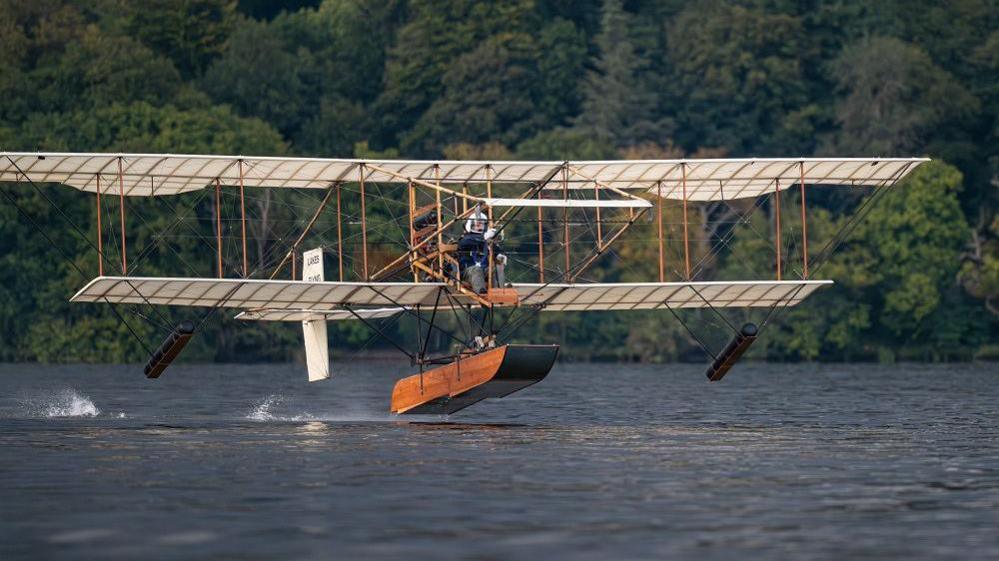
Waterbird first flew on Windermere in 1911
- Published
A replica of a historic seaplane is returning to the lake where it took its first flight in 1911.
Waterbird, the UK's first successful seaplane, flew over Windermere in the Lake District after being converted from a landplane, but was destroyed in a storm when its hanger collapsed.
A replica of the aircraft took almost 20 years to complete and pilot Chris Götke will fly it over Waterbird's native lake on Friday and Saturday evening in a public event to celebrate its history.
The team behind it wants to find a permanent home for it and create a Heritage Seaplane Centre in the area.
Lieutenant Commander Götke successfully flew over Windermere earlier this week, in a trial ahead of the public events.
"She did beautifully," he said. "It's amazing to think how they used to fly in the old days, fully open in the air and just controlling her through flight."
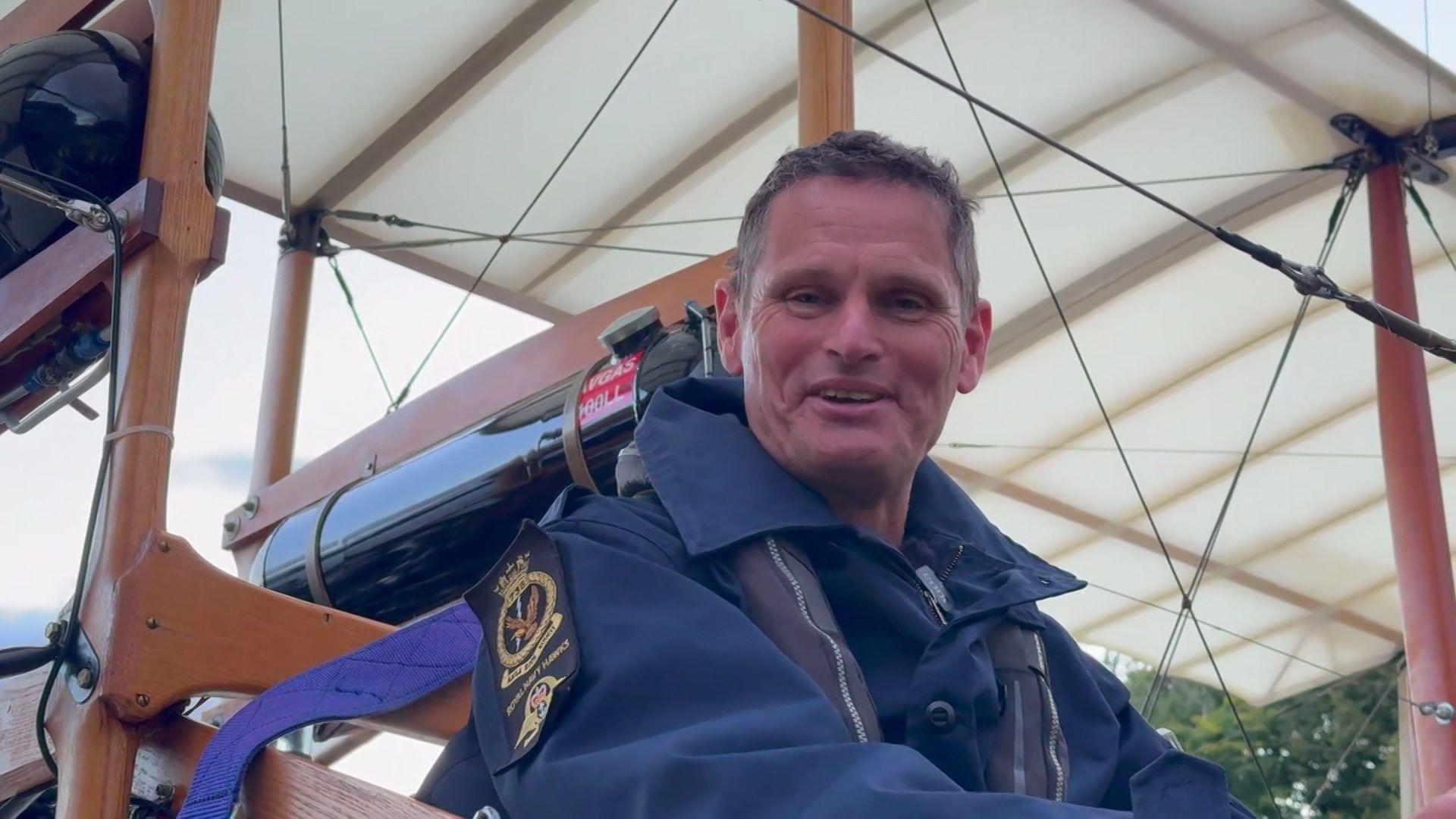
Lieutenant Commander Götke will be flying Waterbird over Windermere on Friday and Saturday
The aircraft is mostly made of bamboo and wires and is very susceptible to wind, making it hard to fly.
He added: "One thing is for sure - she's definitely an unstable beast.
"You've definitely got to keep her on the straight and narrow, but it's just amazing."
The events are organised by The Lakes Flying Company Ltd, which built the replica, and are free to attend.
The seaplane is due to take off at 18:45 BST on both evenings, with a chance of a spitfire flypast on Friday.
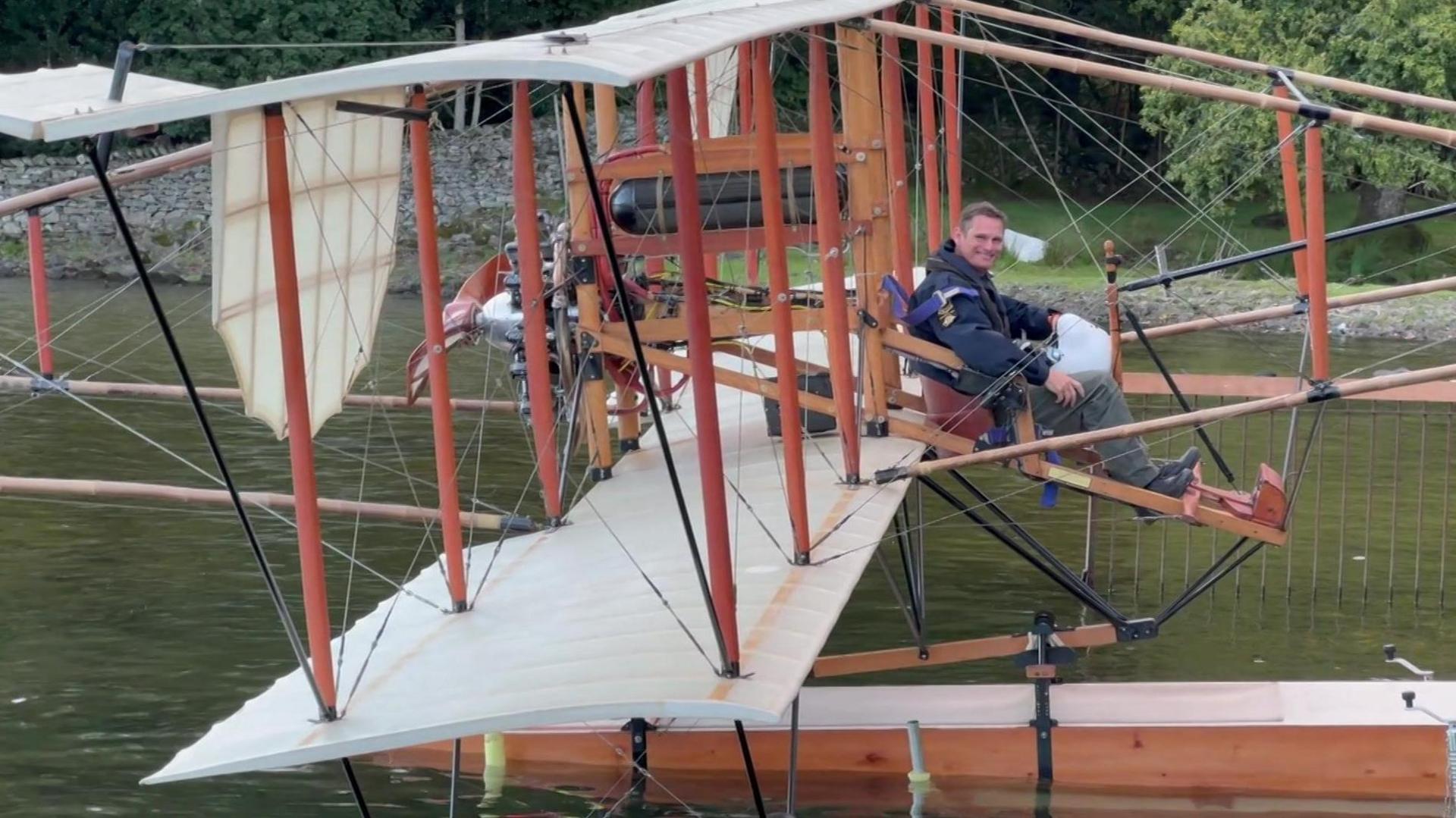
Waterbird is very susceptible to wind, making it difficult to control
The company is hoping to be able to hold more frequent flights if a permanent home can be found locally.
Adrian Legge, a volunteer at the project, said while many people were aware of Windermere's role as the site of a factory making Sunderland flying boats during World War Two, most people did not know that seaplane aviation started 30 years before that.
"Waterbird does form a very significant part of the heritage of the lake," he said.
The aircraft is currently stored in Liverpool, meaning it has to be transported by trucks and reassembled each time it is flown.
Ian Gee, chairman of the Lakes Flying Company, said: "To have a permanent base and to bring all the heritage of the lake and the wonderful story to life, that would be really marvellous."
Follow BBC Cumbria on X, external, Facebook, external, Nextdoor and Instagram, external.
Get in touch
Do you have a story suggestion for BBC Cumbria?
Related topics
- Published12 August 2024
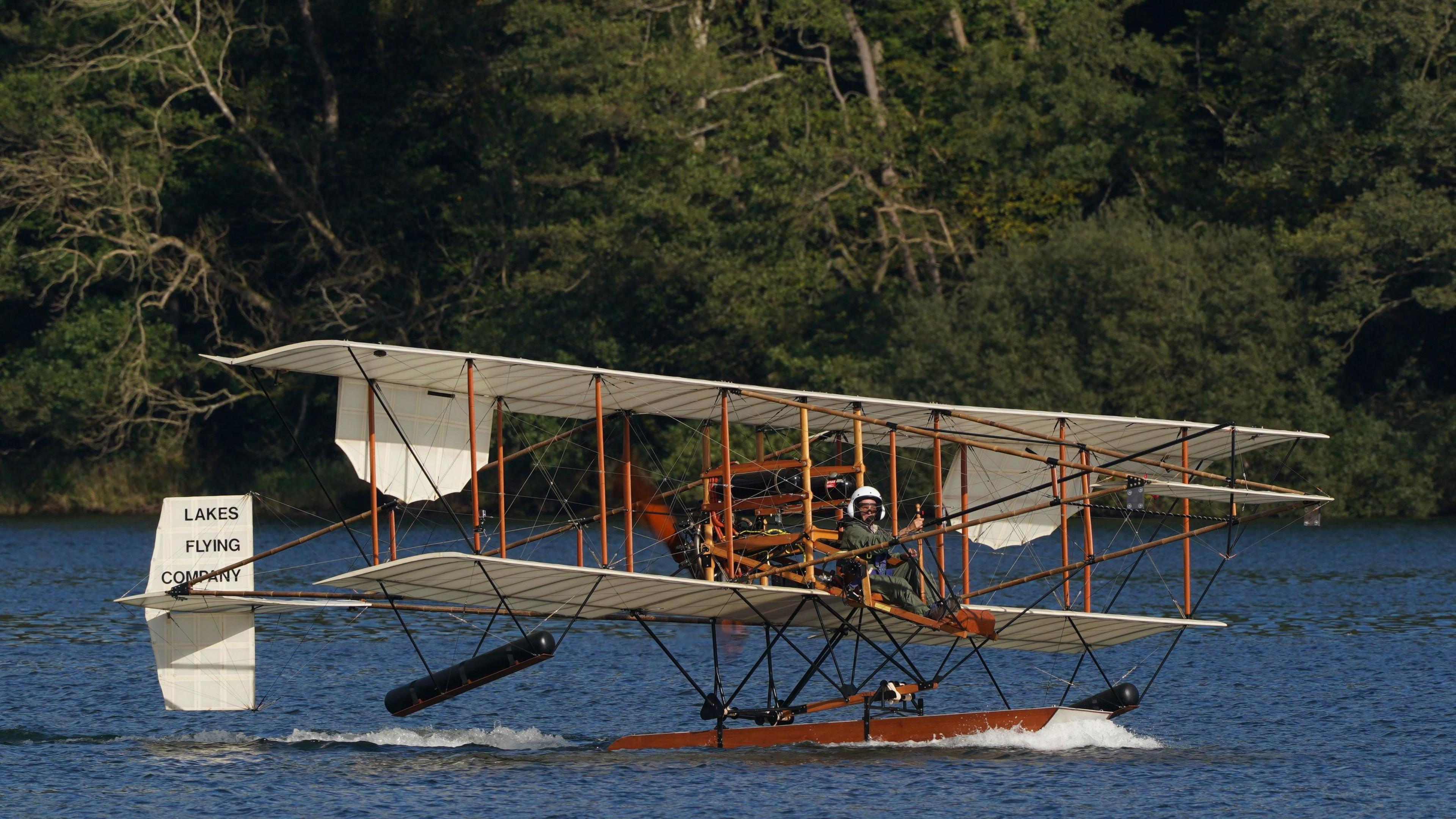
- Published23 September 2022
